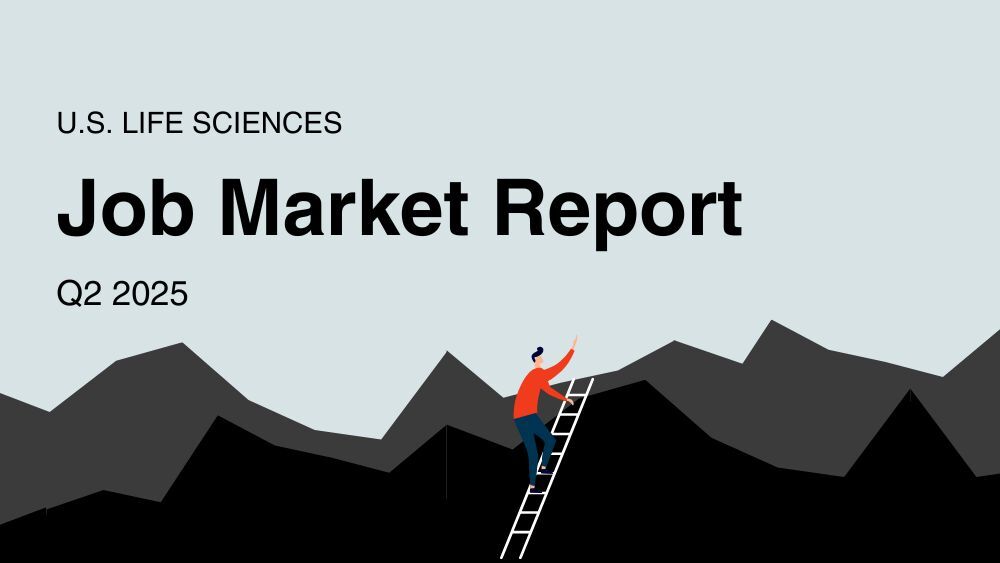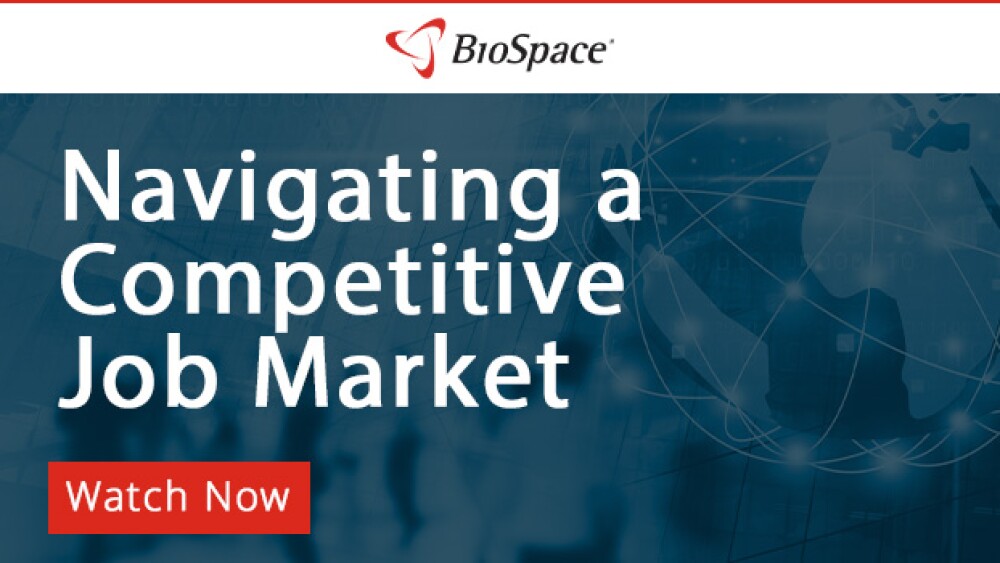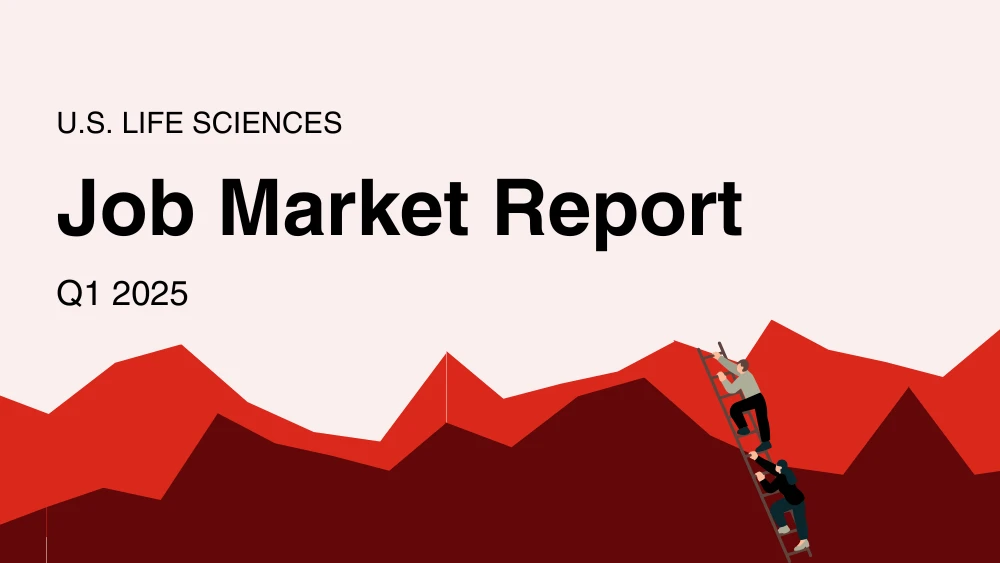Career Advice
Looking for a biopharma job? Check out the BioSpace list of 12 top companies hiring life sciences professionals like you.
Leadership
Attendance at the Biotech CEO Sisterhood’s annual photo of women leaders and allies in Union Square doubled this year. There’s still more work to do.
Career Pathing
The difference between a job and a career is what you walk away with when it ends. Here’s how to evaluate if your role and environment are enabling capability building–and if your title is holding you back.
What should you do when belief in the mission remains, but the career path doesn’t?
In a volatile industry, staying put might seem like a smart bet, but job hugging can quietly erode your visibility, growth and future opportunities.
Best of Career Coach
Plus, tips on applying to multiple jobs at the same company, making new work friends, and how to ask for more time at the offer stage.
JOB SEARCH STRATEGY
Nearly one-third of biotech and pharma professionals are thinking about leaving the U.S. to find biopharma jobs, according to a BioSpace LinkedIn poll. Career coaches discuss why people are considering relocating and what they should do before heading for the exit.
Biopharma professionals aren’t typically hired right away, based on a BioSpace LinkedIn poll. In the past year, only about one-third of respondents found employment in three months or less. Several who did share their keys to success.
With layoffs happening at biopharma companies of all sizes, some may wonder which jobs are safest. Talent acquisition experts spoke to BioSpace about the areas and roles they recommend to biotech and pharma professionals hoping to avoid staff cuts.
RESUMES AND COVER LETTERS
Some companies’ preferences for people who already have industry experience and the tough job market are among the hurdles those just starting out in biopharma must navigate, two recruitment experts told BioSpace.
Learn how to leverage your end-of-year downtime to document achievements, update your professional presence and prepare for a successful 2025.
Candidates looking to enter biotech should focus on cultivating key skills, thoughtfully crafting their resumes and putting their best, most authentic foot forward in interviews. An internship, co-op or fellowship won’t hurt, either.
INTERVIEWS
Biopharma professionals have become increasingly likely to be dishonest when interviewing for jobs, based on BioSpace interviews with three talent acquisition experts. The experts discuss the reasons why as well as the types of fraud happening, including people posing as applicants.
Transparency doesn’t drive people away. It attracts the right ones and keeps them committed. Leadership coach Angela Justice discusses the problem with leaders only selling the upside and the value of setting accurate expectations from the start.
Sometimes, job interviews stand out for all the wrong reasons, including odd settings, off-topic topics and questionable decorum. BioSpace collected several stories that highlight biopharma professionals’ strangest experiences as they pursued employment.
Venture funds attending the J.P. Morgan Healthcare Conference said mounting funding pressures and Chinese competition have sharpened their focus on leadership qualities, from regulatory expertise and industry experience to the ability to scale—or step aside—as companies mature.
Communication must be viewed as more than the last step of the research process. It is the structure that makes scientific work clear, trusted and remembered.
Employees rarely leave companies for one reason alone. In this column, Kaye/Bassman’s Michael Pietrack shares a framework that helps leaders identify when their team members are thinking about heading for the exit—and how to address it.
Media coverage can help biopharma executives connect with, inform and inspire the public. In this column, Kaye/Bassman’s Michael Pietrack and three communications experts share how to make the most of these opportunities.
BioSpace data show biopharma professionals faced increased competition for fewer employment opportunities during the second quarter of 2025, with increased pressure from further layoffs.
What if loyalty is holding you back? While it’s a sign of character, consistency and belief in a mission bigger than yourself, it can also keep you stuck in a job when you should be moving on.
Join us in this discussion on how you can optimize your chances of landing a new role despite a highly competitive job market.
MORE ADVICE
Looking for a new opportunity in New Jersey? These nine companies have open roles that could be a great fit for you.
It’s easy to get caught up in defending yourself against critique that feels unfair. Leadership coach Angela Justice recommends a different approach that can help you better align how you want to be seen with how you’re showing up.
Tapping into the hidden job market can be challenging but is important in today’s employer-driven market. Three talent acquisition experts share tips for accessing hard-to-find roles.
In the latest installment of his column, Kaye/Bassman’s Michael Pietrack shares five ways leaders can help their teams after a layoff, from acknowledging emotions to reestablishing culture.
Whether you’re moving on or being moved out, how you leave can shape your reputation more than how you led.
Year-over-year BioSpace data show biopharma professionals faced increased competition for fewer employment opportunities during the first quarter of 2025.
Learn how to extract the full value from executive coaching, starting with being open and honest with your coach.
Just raising the alarm won’t drive action. Use these three steps to turn insights into solutions that leadership can’t ignore.
Layoffs leave more than empty desks—they leave uncertainty, guilt and anxiety. Three simple steps will help you regain control of your work, well-being and career.










































